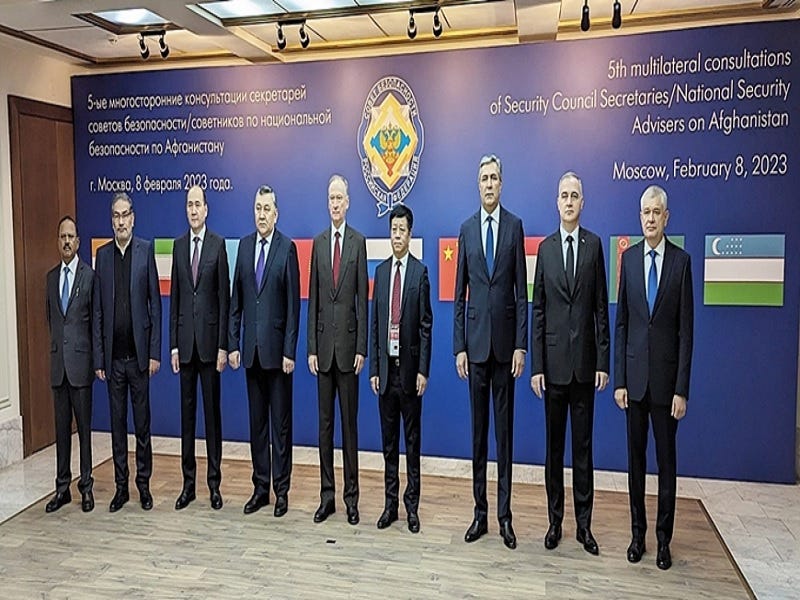Pakistan Shouldn’t Have Skipped The Moscow Meeting On Afghanistan
The five disadvantageous outcomes of Pakistan’s decision were that: 1) Russia was left wondering why Pakistan conveyed its interest in this event during Kabulov’s trip to Islamabad only for it to not take part; 2) questions are now raised about the sincerity of its rapprochement with Moscow; 3) Islamabad also hinted that bilateral spats with Delhi will impede its participation in multilateral events; 4) its tensions with the Taliban were left unclarified; and 5) NSA Doval ended up stealing the show.
Pakistani newspaper Dawn, which is considered close to that country’s post-modern coup regime, reported that its country’s officials chose to skip this week’s National Security Advisor (NSA) meeting on Afghanistan in protest of India’s participation. They quoted an unnamed official who explained that “We will not become part of forums on Afghanistan that already includes India.” While Islamabad has the right to hold that stance, it still shouldn’t have skipped the latest meeting for the following reasons.
For starters, Russian Presidential Special Envoy on Afghanistan Zamir Kabulov was under the impression that Pakistan would participate in that event after he personally invited it to do so during his trip to Islamabad last month according to Dawn’s report. This observation suggests that Pakistan either innocently miscommunicated its intentions during that time or deliberately misled Russia’s point man on Afghanistan, either scenario of which reflects negatively on its diplomatic professionalism.
The second disadvantageous outcome brought about by this decision is that it unexpectedly occurred amidst the noticeable improvement in bilateral relations that followed Foreign Minister Bilawal Bhutto Zardari’s trip to Moscow at the end of January. Both sides made progress on clinching comprehensive economic and energy deals, only for it to turn out that Islamabad abruptly decided to put the brakes on their rapprochement by bowing out of the upcoming NSA meeting on Afghanistan.
Third, while Pakistan of course had the right to undertake that course of action in accordance with what its leadership regards as their national interests, the resultant impression is that it’s letting bilateral disputes with India impede their collective work on advancing shared regional goals. This bodes negatively for how its SCO partners might expect its forthcoming behavior in their group, especially regarding whatever meetings it might eventually also hold on Afghanistan.
Moving along to the fourth point, Pakistan’s lack of participation in the latest meeting might have prompted speculation among some of its members about the true state of that country’s worsening security dilemma with the Taliban. Islamabad could have benefited by briefing everyone on this situation and putting their fears about an impending “special military operation” there to rest. Without a doubt, President Putin also noticed Pakistan’s absence at this meeting that he himself attended.
And finally, Pakistan let Indian NSA Ajit Doval steal the show after it was reported that he had a separate meeting with the Russian leader. Former Indian Ambassador to Russia Kanwal Sibal reinforced this point in a tweet where he wrote that “This is very significant. Putin has never met our NSAs before. He does not meet our EAMs either except as far as I know when I organised Natwar Singh to call on him while I was ambassador. Clearly, NSA carried an important message from Modi.”
To summarize, the five disadvantageous outcomes of Pakistan’s decision were that: 1) Russia was left wondering why Pakistan conveyed its interest in this event during Kabulov’s trip to Islamabad only for it to not take part; 2) questions are now raised about the sincerity of its rapprochement with Moscow; 3) Islamabad also hinted that bilateral spats with Delhi will impede its participation in multilateral events; 4) its tensions with the Taliban were left unclarified; and 5) NSA Doval ended up stealing the show.




